Search Results
Showing results 21 to 28 of 28
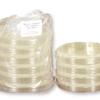
Does Sunscreen Protect My DNA?
Source Institutions
In this laboratory experiment, learners explore how effectively different sunscreens protect yeast cells from damage caused by ultraviolet (UV) radiation.
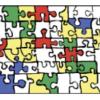
Finding a Gene on the Chromosome Map
Source Institutions
In this activity, learners use pedigree and jigsaw puzzles to explore how scientists use genetic information from a family to identify a gene associated with a genetic disorder.

Hatch-a-Cyst
Source Institutions
What is the optimal environment for hatching brine shrimp? Using a scaffold, learners design and conduct experiments testing the effect of a single abiotic factor on brine shrimp cyst hatch rate.
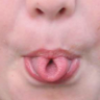
Family Traits and Traditions
Source Institutions
In this activity, learners play a matching game with their families to discover common inherited traits and traditions. Learners distinguish between inherited traits and learned traditions.
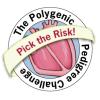
Pick the Risk: The Polygenic Pedigree Challenge
Source Institutions
In this activity, learners are challenged to track and record the passage of colored pom poms (representing genes) through generations of a family using a pedigree.

Reading DNA
Source Institutions
In this activity, learners use edible models of the DNA molecule to transcribe an mRNA sequence, and then translate it into a protein.

DNA and Histone Model
Source Institutions
In this activity, learners construct a 3-D paper model depicting how histone, acetyl and methyl molecules control access to DNA and affect gene DNA expression.
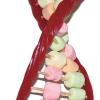
Have Your DNA and Eat It Too
Source Institutions
In this activity, learners build edible models of DNA, while learning basic DNA structure and the rules of base pairing.
